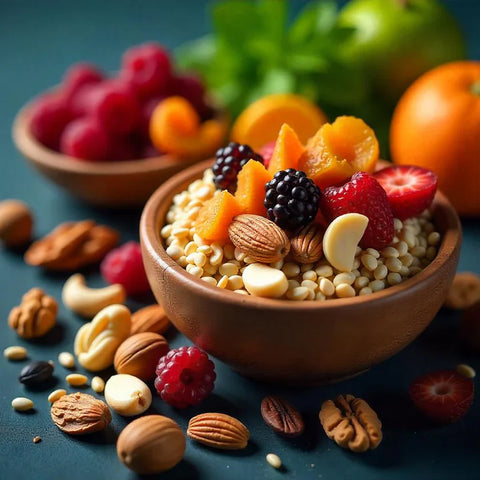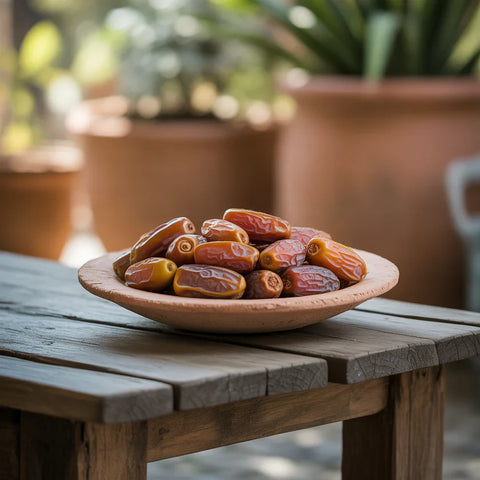The Importance of Healthy Blood Levels
Healthy blood levels are important for energy, strength, and carrying oxygen throughout the body. Low blood levels can cause tiredness, weakness, and dizziness. A good diet helps keep your blood healthy. Eating the right foods gives your body the nutrients it needs to build strong blood. Natural, nutrient-rich foods are a simple way to boost blood levels.
Essential Nutrients for Blood Health
Iron: Iron helps make hemoglobin, which carries oxygen in blood. Plant foods have non-heme iron, which absorbs better with Vitamin C but worse with tea or coffee.
-
Folate (Vitamin B9): It helps make red blood cells. Without enough, the body may feel tired and weak due to fewer healthy cells and poor oxygen delivery.
-
Vitamin B12: It supports red blood cell growth and nerve health. It’s mainly in animal foods, so vegetarians need supplements or fortified plant-based options.
-
Vitamin C: It helps the body absorb non-heme iron better. Eating citrus fruits, strawberries, or amla with iron-rich foods improves iron use in the body.
-
Copper: It helps the body use and move iron properly. Without enough copper, iron can’t be used well, leading to low energy and weak blood.
Nuts and Dry Fruits for Boosting Blood
Some nuts and dry fruits are great for boosting blood health. Raisins, especially dark ones, are rich in iron. Dried apricots, dates, and prunes also help improve iron levels. Cashews, almonds, and pistachios not only provide iron but also contain other nutrients that support healthy blood. Adding them to your diet is a smart choice.
Nuts and Seeds That Boost Nutrition
Walnuts are packed with healthy fats and important minerals that support overall health. Pumpkin seeds give you iron and zinc, which help build strong blood and support immunity. Sesame seeds are rich in iron and calcium, which are good for blood and bones. Adding these to your diet can make a big difference.
Easy Ways to Add Nuts and Seeds to Your Diet
Enjoy walnuts or pumpkin seeds as a healthy snack. Add sesame seeds to oatmeal or yogurt for breakfast. Mix them into salads or make your trail mix. You can also use them in desserts like energy balls or granola bars. These small changes can boost your nutrition every day.
Beyond Nuts and Dry Fruits: Complementary Foods for Blood Health
Legumes, green leafy vegetables, whole grains, and vitamin C-rich fruits like oranges and berries help keep your blood healthy. Eating a mix of these foods supports iron levels and overall wellness. A balanced diet is key to good health.
Tips for Maximizing Nutrient Absorption
Pair iron-rich nuts and dry fruits like almonds, cashews, and raisins with Vitamin C-rich foods like oranges or berries to help your body absorb iron better. Avoid drinking too much tea or coffee with meals. Drink plenty of water to stay healthy and hydrated.
Nourishing Your Body from Within
What you eat matters for strong, healthy blood. Adding nuts and seeds to your meals is a smart and easy step. Want the best quality? Visit Palm Tree to find fresh, nutrient-rich nuts and dry fruits to support your healthy blood journey.
FAQ’s
Can eating nuts and dry fruits alone cure anemia?
Diet plays a key role, but severe anemia requires medical treatment. Always consult a doctor for proper diagnosis and care.
How much of these nuts and dry fruits should I eat to see a difference?
A small handful (about 1 oz or 28 grams) daily can help. Consistency is important for long-term benefits in supporting iron levels.
Are there any side effects of consuming too many nuts and dry fruits?
Excessive intake can lead to high calorie consumption, weight gain, or digestive issues like bloating. Moderation is key to avoiding such problems.











